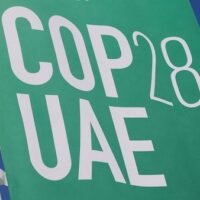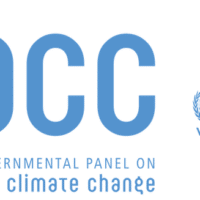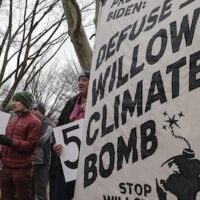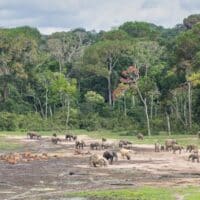-
A scientist’s warning on how climate change is rooted in violence
The education system kills innate curiosity and hinders the development of scientific attitude and is thus conducive for the philosophy of othering. Even this lopsided knowledge is not available to all. Thus, people become oblivious to the universality of humankind and species’ interdependence.
-
COP28: Where fossil fuel industries go to gloat
Call it a drugs summit for narcotics distributors promoting clean-living; a convention for casino moguls promising to aid problem gamblers. The list of wicked analogies is endless.
-
Carbon capture’s publicly funded failure
Carbon, Capture, Utilization, and Storage (CCS or CCUS) has a 50-year history of failure.
-
The nuclear geopolitics of anthropogenic clouds
Among the various types of anthropogenic clouds, mushroom clouds that form in the sky after atomic bomb explosions are arguably the most spectacular.
-
Relying on carbon capture and storage could Unleash ‘carbon bomb’
“We need to cut through the smoke and mirrors of ‘abated’ fossil and keep our eyes fixed on the goal of 1.5°C,” said a co-author of a new analysis.
-
Despicable derailment of UN Climate negotiations
Capitalism is taking humanity to disaster with a tiny minority doing most of the damage.
-
COP28: The mirage that capitalism can solve its destruction
The COP28 summit taking place in Dubai, United Arab Emirates from 30 November to 12 December is a colossal illusion, a mirage in the desert.
-
IPCC rebellion
It’s 35 years since formation of the Intergovernmental Panel on Climate Change (IPCC) “to advance scientific knowledge about climate change caused by human activities.”
-
The dark side of SpaceX’s flight of innovation
While Elon Musk grabbed headlines again after Starship’s second test flight, his workers continue to toil under high stress and the lack of safety.
-
ExxonMobil’s land grab
In 2014/15, the most sinister and predatory oil corporation in the world, ExxonMobil-an avowed enemy of Venezuela-discovered oil in land and sea of the disputed territory.
-
German Constitutional Court rules climate change fund is unconstitutional—A signal for further social cuts
Germany’s Federal Constitutional Court’s ruling on the federal government’s Climate Change Fund is not a legal, but a political decision. It reduces the previously agreed budget by €60 billion in one fell swoop and is a signal for further social spending cuts.
-
Averting a rendezvous with disaster
‘Cultural environmentalism’ alone will not solve the climate crisis, as, couched in the language of passivity, it avoids the urgent need for planned and targeted action, says ZOLTAN ZIGEDY.
-
How the United States underdeveloped Somalia
On September 6, 2023, the United States military reportedly assisted the Somali government in an deadly counter-terrorism operation that killed five civilians.
-
‘1 Million Members, 100 Million Trees: How Brazil’s Socialist Farmers Are Fighting Big Ag’
The one-million strong Landless Workers Movement (MST) is a backbone of the Brazilian left, famous for its mass actions and radical land occupations all across the Brazilian countryside.
-
New study finds overwhelming evidence of harms from fracking
A review of the scientific literature reveals enormous public health, environmental, and climate damage from fracking. Authors say that “no rules or regulations can make these practices safe.”
-
Climate groups plan to appeal as Judge upholds Biden approval of Willow Drilling Project
“Beyond the illegality of Willow’s approval, Interior’s decision to greenlight the project in the first place moved us in the opposite direction of our national climate goals in the face of the worsening climate crisis.”
-
Pan-Africanism and digital technology
Digital technology in its current form is here to stay–or at least until we break the supply chains draining the Congo and her kind–and we know how much of a role it plays in communication.
-
Central Africa Forest Initiative (CAFI): A classic case of climate funding fraud in Africa
Central Africa Forest Initiative (CAFI) was established in 2015 to protect the huge rainforests of the Congo Basin, which span six Central African countries: DR Congo, Republic of Congo, Central African Republic, Cameroon, Equatorial Guinea and Gabon.
-
Big Ag is draining the Colorado River dry
The American West is facing a water crisis, compounded by climate change, a history of bad policy, and government refusal to address Big Ag head-on.
-
Growing native potatoes in synergy with the land and its people
Campesinos high up in the beautiful Andean valley of Gavidia are working to preserve the native potato and the way of life that goes with it.











![The Federal Constitutional Court in Karlsruhe [Photo by Tobias Helfrich / CC BY-SA 3.0]](https://mronline.org/wp-content/uploads/2023/11/b79f29a7a55a104ef8703e914ae5878052ef6584-200x200.jpg)








